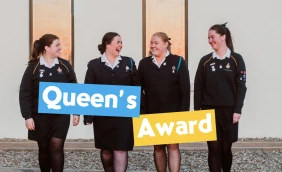Guidelines
Recruitment of New Leaders
GBNI provides guidelines to local companies on recruiting new leaders. Ensuring consistency across all GB companies.
Guidelines for Volunteer Roles
Guidelines for volunteer roles in GB are provided in the ‘GBNI Safeguarding Policies Pack’ or can be viewed online via the Leaders’ Section. This includes a list of generic requirements that apply to all roles followed by guidance on specific roles. When recruiting leaders, it is recommended that you use our role descriptions as a guide and add points to suit your company/church. Please do not alter what is already on the role guidelines, but you may add to the list of responsibilities to suit your local situation. This ensures a level of consistency among our companies and provides for volunteers who wish to widen their roles to include work for their district or GBNI. All roles are ‘regulated positions’ and therefore subject to the necessary Enhanced Disclosure Checks with AccessNI.
General Points:
Appointments of GB leaders are made and approved by the local church. Volunteers are accountable to the local church.
Church recruitment and selection procedures are to be followed for the appointment of volunteers. Those procedures must include the steps outlined in the procedure opposite.
All leadership roles that fit the definition of ‘regulated activity’ will be subject to background checks through AccessNI (to be processed according to church procedure). A definition of regulated activity is provided above.
Most roles in GB companies fit the definitions of regulated activity and, therefore, will need AccessNI checks.
Young helpers/leaders aged 16 and 17 do not need to be checked and should work under the supervision of an adult leader.
The church will supply to GBNI the names and contact details of all the volunteers following their appointment and confirm that new leaders have been AccessNI checked. This is done through the submission of annual returns in 'My Brigade'.
If GBNI has concerns that certain practices breach child protection guidelines, such concerns should be raised with the Company Captain and/or the Company Chaplain. If the concerns are not satisfactorily dealt with GBNI may withdraw affiliation from that company.










